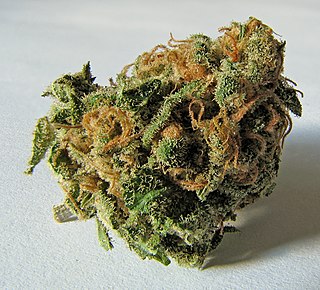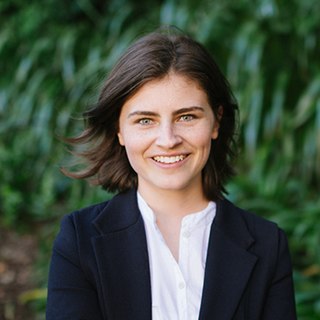Related Research Articles

420, 4:20, or 4/20 is cannabis culture slang for marijuana and hashish consumption, especially smoking around the time 4:20 pm, and also refers to cannabis-oriented celebrations that take place annually on April 20.
The National Organization for the Reform of Marijuana Laws is an American non-profit organization based in Washington, DC whose aim is to move public opinion sufficiently to achieve the legalization of non-medical marijuana in the United States so that the responsible use of cannabis by adults is no longer subject to penalty. According to their website, NORML "supports the removal of all criminal penalties for the private possession and responsible use of marijuana by adults, including the cultivation for personal use, and the casual nonprofit transfers of small amounts", and "supports the development of a legally controlled market for cannabis". NORML and the NORML Foundation support both those fighting prosecution under marijuana laws and those working to legalize marijuana. Similar affiliated organizations operate under the NORML banner in other countries, among them NORML New Zealand, NORML Ireland, NORML Canada, NORML UK, NORML South Africa and NORML France.
The Green Party of Aotearoa New Zealand, commonly known as the Greens, is a green and left-wing political party in New Zealand. Like many green parties around the world, it has four organisational pillars. The party's ideology combines environmentalism with left-wing and social-democratic economic policies, including well-funded and locally controlled public services within the confines of a steady-state economy. Internationally, it is affiliated with the Global Greens.

Aotearoa Legalise Cannabis Party (ALCP), also known as the Cannabis Party, is a political party in New Zealand. It is dedicated to removing or reducing restrictions on the use of cannabis and similar substances.

The Global Marijuana March (GMM), also referred to as the Million Marijuana March (MMM), is an annual rally held at different locations around the world on the first Saturday in May. A notable event in cannabis culture, it is associated with cannabis-themed events, which may include marches, meetings, rallies, raves, concerts, festivals, and attempts at educational outreach.

There are numerous gangs in New Zealand, of varying criminality, organisation and ethnicity, including outlaw motorcycle gangs, street gangs and ethnically based gangs. A chapter of the Hells Angels motorcycle club was formed in Auckland in 1961, the first Hells Angels chapter outside the US. Soon after, the Mongrel Mob formed in Hastings and Wellington, developing into a predominantly Māori and Pacific Islander gang, and having the largest membership in the country. Through the 1960s and 1970s other outlaw motorcycle clubs and ethnically based gangs formed, including another predominantly Māori gang, Black Power, which grew to rival the Mongrel Mob.

Jodie Emery is a Canadian cannabis rights activist and politician. She is the spouse of fellow activist Marc Emery. Until the business was shut down by police, the couple were co-owners of Cannabis Culture, a business that franchised pot dispensaries, later deemed to be illegal. They had obtained the cannabis from illegal sources, according to Crown prosecutors. They are the former operators and owners of Cannabis Culture magazine and Pot TV.

Otago University NORML is a pro cannabis law reform student club at the University of Otago, affiliated to the Otago University Students Association. It is a local chapter of the national New Zealand cannabis law reform organisation NORML New Zealand, an affiliate of the National Organization for the Reform of Marijuana Laws (NORML).

The use of cannabis in New Zealand is regulated by the Misuse of Drugs Act 1975, which makes unauthorised possession of any amount of cannabis a crime. Cannabis is the fourth-most widely used recreational drug in New Zealand, after caffeine, alcohol and tobacco, and the most widely used illicit drug. In the population of more than four million, 13.4% of those aged 16–64 use cannabis. This ranks as the ninth-highest cannabis consumption level in the world.

In the United States, the use of cannabis for medical purposes is legal in 33 states, four out of five permanently inhabited U.S. territories, and the District of Columbia, as of January 2019. Fourteen other states have more restrictive laws limiting THC content, for the purpose of allowing access to products that are rich in cannabidiol (CBD), a non-psychoactive component of cannabis. There is significant variation in medical cannabis laws from state to state, including how it is produced and distributed, how it can be consumed, and what medical conditions it can be used for.

Cannabis in California has been legal for medical use since 1996, and for recreational use since late 2016. The state of California has been at the forefront of efforts to liberalize cannabis laws in the United States, beginning in 1972 with the nation's first ballot initiative attempting to legalize cannabis. Although it was unsuccessful, California would later become the first state to legalize medical cannabis with the passage of the Compassionate Use Act of 1996. In November 2016, California voters approved the Adult Use of Marijuana Act to legalize the recreational use of cannabis.
Dakta Green, formerly Kenneth Morgan is a former New Zealand cannabis law reform activist and political candidate. He changed his name by public poll in 2008. He is the Activism co-ordinator for NORML New Zealand, the driver of Mary Jane the Cannabus, and founder of The Daktory. He was a candidate for the Aotearoa Legalise Cannabis Party in the 2009 Mount Albert by-election.

NORML New Zealand is a cannabis law reform organisation in New Zealand. It is a National Chapter of the National Organization for the Reform of Marijuana Laws (NORML).

In the United States, the use and possession of cannabis is illegal under federal law for any purpose, by way of the Controlled Substances Act of 1970. Under the CSA, cannabis is classified as a Schedule I substance, determined to have a high potential for abuse and no accepted medical use – thereby prohibiting even medical use of the drug. At the state level, however, policies regarding the medical and recreational use of cannabis vary greatly, and in many states conflict significantly with federal law.

The legal history of cannabis in the United States began with state-level prohibition in the early 20th century, with the first major federal limitations occurring in 1937. Starting with Oregon in 1973, individual states began to liberalize cannabis laws through decriminalization. In 1996, California became the first state to legalize medical cannabis, sparking a trend that spread to a majority of states by 2016. In 2012, Washington and Colorado became the first states to legalize cannabis for recreational use.

Whakamana, or The New Zealand Institute for Cannabis Education, Research and Development is New Zealand's first museum dedicated to the history of cannabis use and culture. It was first opened in October 2013 in Dunedin as part of a project spearheaded by Abe Gray, former deputy leader of the Aotearoa Legalise Cannabis Party (ALCP), and Julian Crawford, former ALCP regional spokesperson. In 2019 Whakamana relocated to Shand's Emporium in Christchurch as a new project directed by Abe Gray and Cookie Time founder Michael Mayell. Following revenue issues and a failure to find suitable investors, the Christchurch location was closed. As of April 2020, Gray is attempting to establish a new site in central Wellington, the capital city of New Zealand. As a political hub which houses New Zealand's parliamentary buildings, Gray considers the location to be more effective in the lead-up to the referendum.

Cannabis in Washington relates to a number of legislative, legal, and cultural events surrounding the use of cannabis. On December 6, 2012, Washington became the first U.S. state to legalize recreational use of marijuana, second in recreational marijuana sales. The state had previously legalized medical marijuana in 1998. Under state law, cannabis is legal for medical purposes and for any purpose by adults over 21.

Chlöe Charlotte Swarbrick is a New Zealand politician and entrepreneur. Following a high-profile but unsuccessful run for the 2016 Auckland mayoral election, she became a parliamentary candidate for the Green Party of Aotearoa New Zealand, standing in the 2017 New Zealand general election and was elected as a member of the New Zealand Parliament at the age of 23. In the 2020 election, Swarbrick was elected as the Member of Parliament for Auckland Central, becoming the second Green Party MP to win an electorate seat in the history of the party.
The 2020 New Zealand cannabis referendum was a non-binding referendum held on 17 October 2020, with advance voting taking place from 3 October, in conjunction with the 2020 general election and a euthanasia referendum, on the question of whether to legalise the sale, use, possession and production of cannabis. The form of the referendum was a vote for or against the proposed "Cannabis Legalisation and Control Bill". Although the vote has already taken place, preliminary results for the referendum are not expected to be released by the Electoral Commission until 30 October 2020, while official results are expected to be released on 6 November 2020.
References
- ↑ Walters, Laura (15 December 2014). "Drug vending machine back with The Daktory club" . Retrieved 20 April 2016.
- ↑ "Court almost triples drug sentence". TVNZ. 30 September 2011. Retrieved 14 October 2011.
- ↑ Hopkins, Steve (January 10, 2010). "Pot clubs go nationwide". Sunday News. Retrieved January 14, 2010.
- ↑ "Foundation dismisses claims of NZ-wide cannabis clubs". New Zealand Herald. January 11, 2010. Retrieved January 14, 2010.
- ↑ NORML News
- ↑ NORML News
- ↑ NORML News
- ↑ "Daktory founder to fight drug charges". New Zealand Herald. January 11, 2010. Retrieved January 14, 2010.
- ↑ "Foundation dismisses claims of NZ-wide cannabis clubs". New Zealand Herald. January 11, 2010. Retrieved January 14, 2010.
- ↑ Hopkins, Steve (January 10, 2010). "Pot clubs go nationwide". Sunday News. Retrieved January 14, 2010.
- ↑ Shepard, Simon (January 10, 2010). "President of cannabis club has expansion plans". TV3 News. Retrieved January 14, 2010.
- ↑ Hopkins, Steve (January 10, 2010). "Pot clubs go nationwide". Sunday News. Retrieved January 14, 2010.
- ↑ Green, Dakta (January 10, 2010). "Police Raid The Daktory". The Daktory. Archived from the original on July 15, 2012. Retrieved January 14, 2010.
- ↑ NORML News
- ↑ "Daktory founder to fight drug charges". New Zealand Herald. January 11, 2010. Retrieved January 14, 2010.